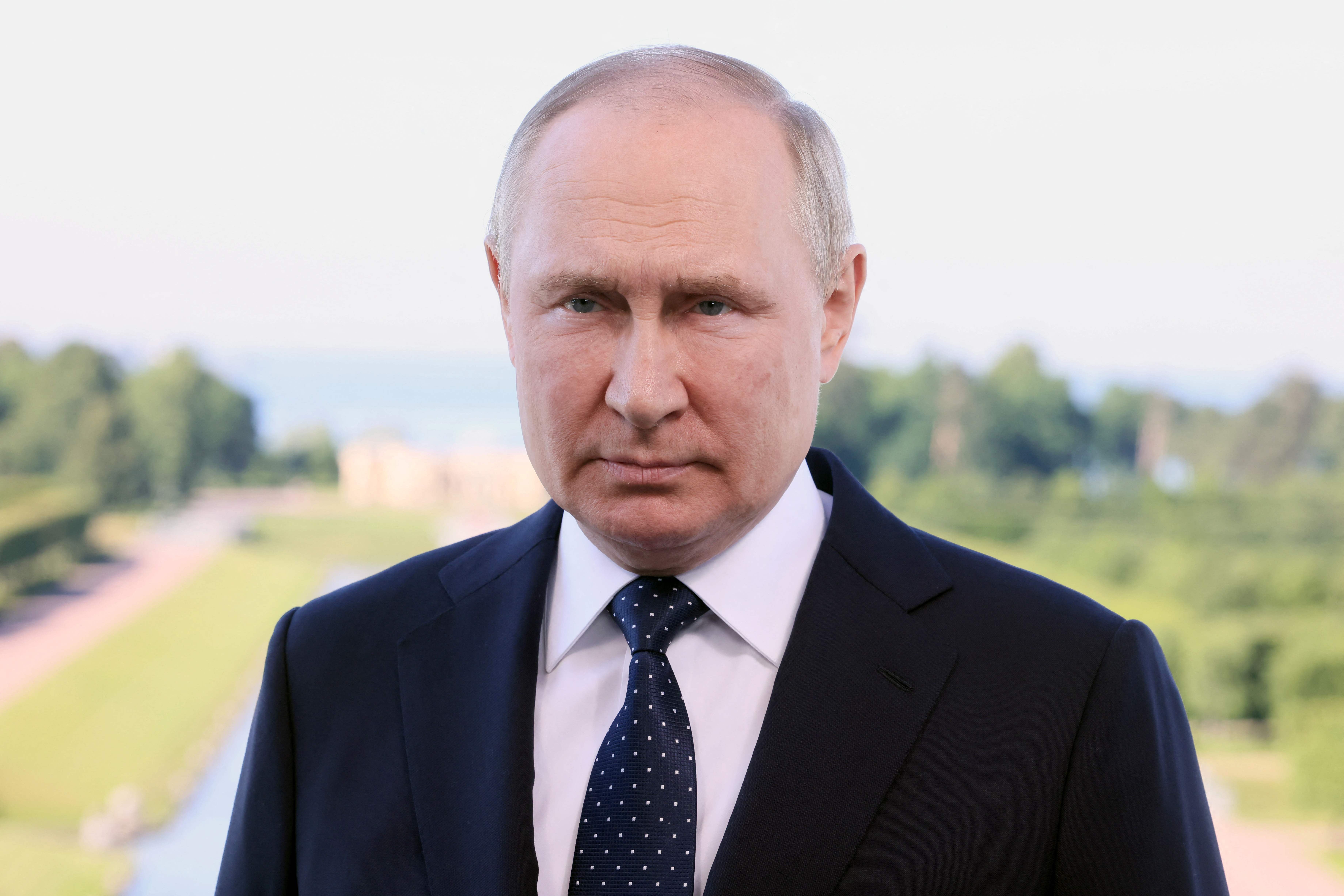Putin can hold onto power in Russia if he backs down over Ukraine, Boris Johnson says
Russian president has sufficient support at home to tell his people that he is halting conflict ‘in the interests of peace’

Your support helps us to tell the story
From reproductive rights to climate change to Big Tech, The Independent is on the ground when the story is developing. Whether it's investigating the financials of Elon Musk's pro-Trump PAC or producing our latest documentary, 'The A Word', which shines a light on the American women fighting for reproductive rights, we know how important it is to parse out the facts from the messaging.
At such a critical moment in US history, we need reporters on the ground. Your donation allows us to keep sending journalists to speak to both sides of the story.
The Independent is trusted by Americans across the entire political spectrum. And unlike many other quality news outlets, we choose not to lock Americans out of our reporting and analysis with paywalls. We believe quality journalism should be available to everyone, paid for by those who can afford it.
Your support makes all the difference.Vladimir Putin still has a way to get out of the war in Ukraine without losing his grip on power in Moscow, Boris Johnson has suggested.
Ever since Russia’s invasion of its neighbour on 24 February, Mr Johnson has made clear that, while supporting Ukraine’s efforts to drive Putin’s troops out of the country, he was not seeking regime change in the Kremlin.
He has previously been critical of Western leaders, like France’s Emmanuel Macron, who have suggested that Putin must be offered a ladder to climb down to allow him to end the conflict without losing face.
But in an interview at the conclusion of the Nato summit in Spain, Mr Johnson said that the Russian president enjoys sufficient support at home to give him the political space to withdraw his troops.
He told LBC radio’s Nick Ferrari: “A point that I think everyone needs to bear in mind, is that the Russian president actually enjoys very considerable levels of public support at the moment in Russia.
“He has, I think, considerable political margin of manoeuvre to say ‘Look, you know, I went in, I had to achieve certain things’ - and it will be up to him to specify what he thought those were – ‘but in the interests of peace, in the interests of the world, I think the time has come now to bring the technical military operation to an end, and to withdraw and to seek a new arrangement’.
“That, I think, is what he should do.”
Mr Johnson said that the Russian president’s decision to withdraw troops from the hotly-contested Snake Island in the Black Sea was an indication that Putin will not be able to hold all the ground he has taken in eastern and southern Ukraine.
“It’s about it’s about, now, changing the dynamic,” he said.
“Volodymyr Zelensky has some ideas about how to move things forward, (how) the Ukrainians can recapture ground.
“Look at what’s just happened in Snake Island today. Putin has had to concede that and there’s a lesson from this: He is in the end going to find it impossible to hold down a country he doesn’t own.”
The prime minister played down the threat that Mr Putin might escalate the conflict by unleashing nuclear weapons if he is unable to overcome Ukrainian resistance by conventional means.
Despite an estimated 35 nuclear threats by Putin and his regime over recent weeks, Mr Johnson said: “I think it’s very, very important that we shouldn’t allow ourselves to be side-tracked by this kind of sabre-rattling.
“Because fundamentally, what Putin is trying to do is to reframe this as about Russia versus Nato.
“It’s not. It’s about his attack on an entirely innocent country, with conventional weapons, with artillery, bombardments with planes, shells and so on.
“And it’s about the Ukrainians’ right to protect themselves. That is what this is about.
“And what we had today at Nato was, yet again, the alliance being tested, being asked, being interrogated. Are we resolved? Are we determined? Will we give the Ukrainians the means to protect themselves?
“And the answer was absolutely yes and, if anything, the strength of the unity is greater than it was before.”
- The full interview will be broadcast on Friday 1 July from 7am on LBC’s Nick Ferrari at Breakfast
Join our commenting forum
Join thought-provoking conversations, follow other Independent readers and see their replies
Comments